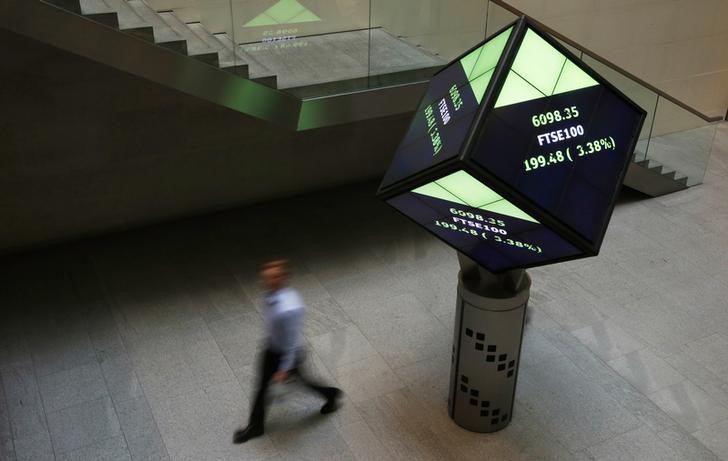* Oil buckles hits lowest since 2009
* Europe stocks drop more than 1.5 pct as oil, miners
battered
* Wall Street expected to open more than 1 pct lower
* Bonds mixed as oil's decline clouds rate view
* Euro, yen hold their ground
By Marc Jones
LONDON, Dec 8 (Reuters) - Global markets were rocked for a
second day on Tuesday, as oil prices fell to their lowest since
2009 and huge declines in by energy and mining shares left the
world's main stock indexes staring at heavy losses.
A leap in Chinese commodity imports had stabilised oil
prices after they fell 6 percent on Monday, but the pressure
returned before U.S. trading, driving WTI crude CLc1 below $37
a barrel.
European shares .FTEU3 were down 1.6 percent at their
lowest level since mid October .EU . futures prices indicated
Wall Street would open lower, too. ESc1 ECONG7
Miners and energy firms .SXPP were down 6.3 percent and,
like oil, at their lowest in almost 7 years. Anglo American
AAL.L sank over 9 percent as it announced plans to sell
assets, merge business units and suspend dividends. BHP Billiton
BLT.L fell almost 6 percent as another lawsuit was filed over
its Brazilian dam.
Currencies of major oil exporting nations such as the
Canadian dollar, the Norwegian crown NOK= and Russian
rouble fell. Safe havens like the yen JPY= and the euro
EUR= gained.
"If you are looking to play weak oil prices you would want
to sell the Canadian dollar and the Norwegian crown," said
Jeremy Stretch, head of currency strategy at CIBC World Markets.
"With oil prices falling and some even talking about oil
falling to $30 a barrel, revenues for these countries will take
a beating and hence their currencies will remain under
pressure."
Brent oil futures LCOc1 were testing $40 a barrel again as
U.S. crude CLc1 broke $38. Since early May, crude has fallen
40 percent, reviving global deflationary pressure.
Asian shares had been hit overnight. Tokyo's Nikkei .N225
ended down more than 1 percent, even though data showed Japan
dodged recession in the third quarter Chinese
stocks fell 1.8 percent.
Though demand for commodities grew, overall Chinese imports
fell for the 13th consecutive month, declining 8.7 percent in
November from a year earlier.
GREECE SLIP
Ultra-safe bond markets provided only some refuge. Yields
on German and other northern euro zone government bonds slipped,
but UK and Swiss yields rose. Last week's ECB disappointment
cooled bets the Swiss National Bank would cut rates this month.
GVD/EUR
Greek 10-year yields rose to their highest level in almost
three months. Concern about Greece's ability to stick to its
reform programme were stoked by comments on the International
Monetary Fund by Prime Minister Alexis Tsipras. He accused the
IMF of making unrealistic demands both on Greece for tough
reforms and on its euro zone partners for debt relief.
"The Fund must decide if it wants to compromise, if it will
stay in the programme," Tsipras said. "If it does not want that
compromise, it should say so publicly."
Looming ahead is the first increase in U.S. interest funds
since before the financial crisis. Federal funds futures
contracts FFcm1 imply an 80 percent chance the Federal Reserve
will raise rates at its Dec. 15-16 meeting and about even odds
of a second rate rise by March.
Long-dated U.S. Treasury debt prices made ground again as
the drop in oil prices pointed to low inflation, which might
persuade the Fed not to act.
Oil's decline also hit currencies linked to oil. The
Australian dollar fell to new intraday lows at $0.7201
emerging markets and the Canadian dollar CAD= to an 11-year
low.
The euro was firm at $1.0856 EUR= following last week's
less-than-aggressive ECB stimulus, The offshore Chinese yuan traded at a three-month low of 6.4930 per dollar
despite another lower-than-expected fixing by China's central
bank.
